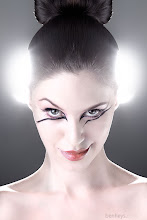deleuze on writing
“Deleuze and Guattari derive far-reaching implications and uses beyond the analysis of language solely… The first [point] is that expression, in so far as it organises content, remains necessarily blind to the material potentials of its own ordered substance, as, for example, when to represent something in words is, qua representation, to eclipse awareness of the shapes and marks on the page, or the unmeaning physicality of sounds, of the substance of thought itself, depending on the material of expression involved. Secondly, as this might suggest, an expression is a kind of encounter with a content, and can by itself be encountered as a form of content in another expression, and another substance, as when writing becomes read, of then again when this reading is discussed verbally. Thirdly, expression as a selective and organising function is the means of power. The encounter of forces becomes regulated by a repertoire of expressive possibilities, restrictive forms of expression and content amenable to institutional recognition and reproducible identification.
In minor literature, then, workings of power are contested in these ways: content becomes expressive; expression becomes material; and the formal controls of major literature becomes resisted, making of literature something that resists recognition as it releases new intensive forces. For instance, in writing about Beckett, Deleuze discusses how the writer distends and ramifies expression, and hance makes it emphatically inclusive of all kinds of bifurcating, endless, fluid multiplicities of sense. More than this, language itself becomes possessed by its inherent physicality, is placed into movements by sonorous intensities that will not resolve into recognisable meaning. So, where the major use of writing, with its premium on good forms, would subdue such stutterings of syntax, the minor writer, like Beckett, may exploit these to make language partake of something non-linguistic, like an erratic movement of the body:
It is Beckett who perfected the art of inclusive disjunction; this art no longer chooses but rather affirms the disjointed terms in their distance and, without limiting or excluding one disjunct by means of another, it criss-crosses and runs through the entire gamut of possibilities… It is true that these affirmative disjunctions, more often than not in Beckett, refer to the air and gait of his characters: an indescribable way to walk, by rolling and tossing…
An expression can be seen to take on physical properties usually identified with bodies, so conversely, deterritorialized, physical elements of language can overrun expression. In broad terms such a transfer is carried out first by playing on the expressive materiality of contents, so letting writing develop from the a-signifying – the purely sonic, in sound, the asyntactical in syntax. Language approximates, in this aspect of its use, to an involuntary animal cry or whoop, as well as unfolding a conductive surface of proliferating multiplicities and becomings of sense that cannot be simply prescribed, or subdued by interpretation:
We find confirmation of this in one of Beckett’s poems that deals specifically with the connections of language and turns stuttering to the poetic or linguistic strength par excellence… he places himself in the middle of the sentence, he makes the sentence grow from the middle, adding one particle to another… in order to direct the course of a block of a single, expiring gasp… Creative stuttering is what makes language grow from the middle, like grass; it is what makes language a rhizome instead of a tree, what pits language in a state of perpetual disequilibrium…
In these ways, then, words resist the stabilising distinction of expression and content, and the function of representation. Writing plays on, and develops from, the expressivity of its unformed materials.”
This is an excerpt that I have written out all by myself from page 61 of a book called “Lines of Flight” (1997) Edited by John Hughes. It is about the writings of Deleuze, and this is a passage that I liked in relation to this course. The quotes within this quote are from pages 65 and 16 of Deleuze and Guattari’s “What is Philosophy?” respectively.


0 Comments:
Post a Comment
<< Home